#camille faure
Explore tagged Tumblr posts
Photo
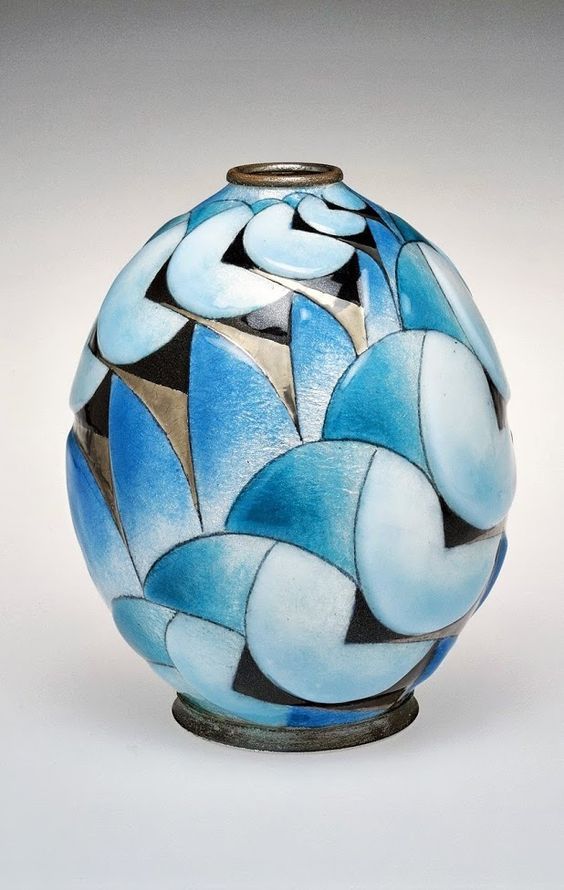
1930s Fauré Art Deco Vase by Camille Faure. Signature: C. FAURE Limoges. The Corning Museum of Glass.
148 notes
·
View notes
Photo

c. 1930 Art Deco copper and enamel vase by Camille Faure (1872-1952).
#1930#art deco#vase#camille faure#vintage#art deco vase#deco vase#deco#french deco#french vase#french deco vase#faure#fauré
46 notes
·
View notes
Text




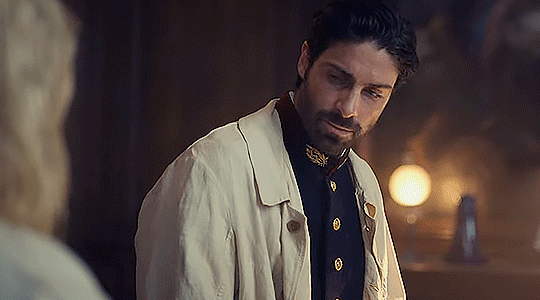
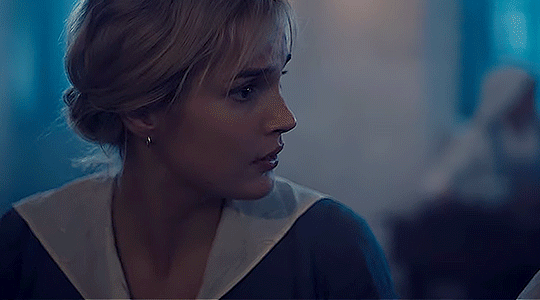


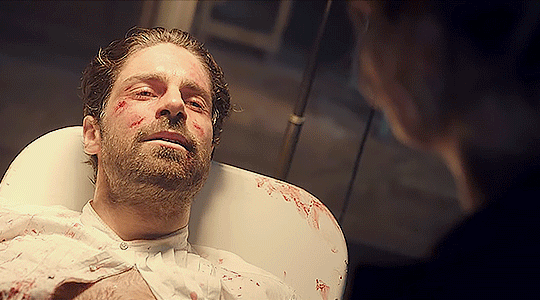

Bonne chance. Bonne chance.
Bonus:

#i'm obsessed with these two okay#i love them your honor#ive seen literally nothing on here about them#so i decided to make stuff#AM I THE FIRST TO MAKE A SHIP NAME#jozanne#i guess?#Les combattantes#women at war#suzanne faure#joseph duvernet#netflix#my gifs#camille lou#tom leeb#oh god the pressure#french tv#wwi#historical drama#period drama#historical fiction#the great war#tf1
131 notes
·
View notes
Photo

1930 c. Spherical vase “Emile” by Camille Faure. It has characteristic polychrome enamel decoration in translucent shades of blue, set in high relief against a polychromatic background. From Art Deco, FB.
266 notes
·
View notes
Text

Charles Jeantaud (1840-1906) was a French engineer who invented the parallelogram steering linkage for motor cars in 1878. In 1881 with the help of Camille Alphonse Faure he built his first electric car, when Faure built the first modern day car battery in 1881. Technical details; his vehicle had a Gramme-design electric motor with a Fulmen-made battery. Between 1893 and 1906 he built vehicles under the trademark Jeantaud in Paris. His early designs of car looked much more like horseless carriages than anything else, and were rather elegant in appearance.
1 note
·
View note
Text


OTD in Music History: French composer and pedagogue Ambroise Thomas (1811 – 1896), best known today for his operas "Mignon" (1866) and "Hamlet" (1868), is born in France. Thomas attended the Paris Conservatoire and won the prestigious "Prix de Rome" in 1832. He then went on to pursue a career as a composer of operas, completing his first work for the stage (“La double echelle”) in 1837. He penned dozens more -- many of which found considerable success with audiences both in France and abroad. Thomas was appointed as a professor at the Paris Conservatoire in 1856, and in 1871 he succeeded fellow opera composer Daniel Auber (1782 – 1871) as the Director. He spent his lengthy tenure modernizing the Conservatoire's organization while simultaneously imposing a rigidly conservative curriculum on the institution and doing his best to prevent “progressive” composers such as Cesar Franck (1822 - 1890) and Gabriel Faure (1845 - 1924) from gaining power. (Much like his younger contemporary, Camille Saint-Saens [1835 - 1921], history has vilified him for this.) Although Thomas' operas were generally neglected during most of the 20th century, recent decades have seen a modest revival both in Europe and America. Emmanuel Chabrier’s (1841 – 1894) jibe that "there is good music, there is bad music, and then there is Ambroise Thomas" is often quoted in modern assessments of Thomas’s oeuvre – but as musicologist Richard Langham Smith notes, it is not actually clear from the context of the statement whether Chabrier meant to imply that Thomas' music was worse than bad... somewhere in between... or something else entirely... PICTURED: An 1861 autograph letter written out and signed by Thomas, referencing the wife of famed French author Victor Hugo (1802 - 1885).
#opera#classical music#music history#bel canto#composer#classical composer#aria#classical studies#Ambroise Thomas#Thomas#classical composers#classical musician#classical musicians#classical history#chest voice#historian of music#musician#musicians#diva#prima donna#maestro#Mignon#Hamlet#teacher#pedagogue#Professor#Orchestra#Overture#Ballet#Opéra-Comique
0 notes
Photo

Vase by Camille Faure
64 notes
·
View notes
Photo






MY FAVOURITE FEMALE FRIENDSHIPS IN FILM › 15 / ∞
CAMILLE, JOSEPHA, ALICE & LOUISE 🧡
CAMILLE REDOUBLE (2012, dir. Noémie Lvovsky)
#camille redouble#camille rewinds#noémie lvovsky#judith chemla#india hair#julia faure#french#woman director#my favourite female friendships#mine#gifs:mine#dailyworldcinema
78 notes
·
View notes
Photo

Vase boule en émail bleu à décor en éventail de Lucie Dadat vers 1930,signé Camille Faure
0 notes
Photo
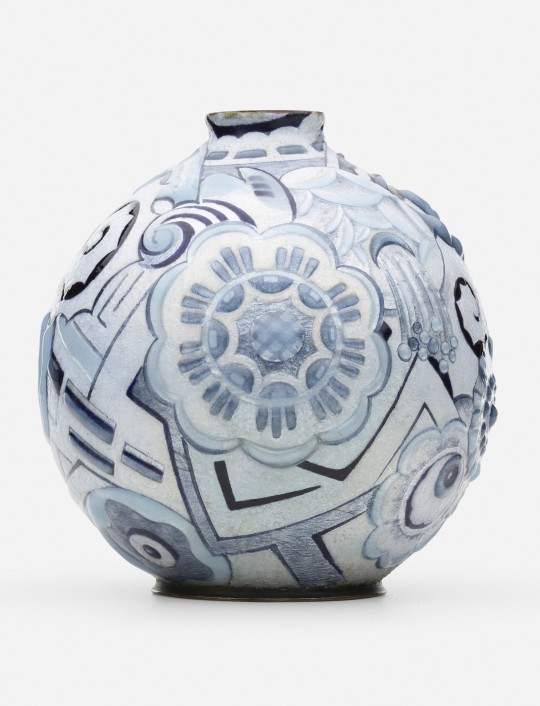
c. 1930 Art Deco Vase by Camillie Faure.
Enameled copper, enameled copper wire8 h × 7¼ dia in (20 × 18 cm).
5 notes
·
View notes
Text
Camille Rowe via @louisremyhair on IG! - August 29th, 2022
#camille rowe#fingermonkey#camillerowe#camille#camille rowe bel#camille rowe pourcheresse#french model#french girl
2 notes
·
View notes
Photo

1925 Enamel painted vases by Camille Faure for Limoges, France. From Art Deco, FB.
101 notes
·
View notes
Photo
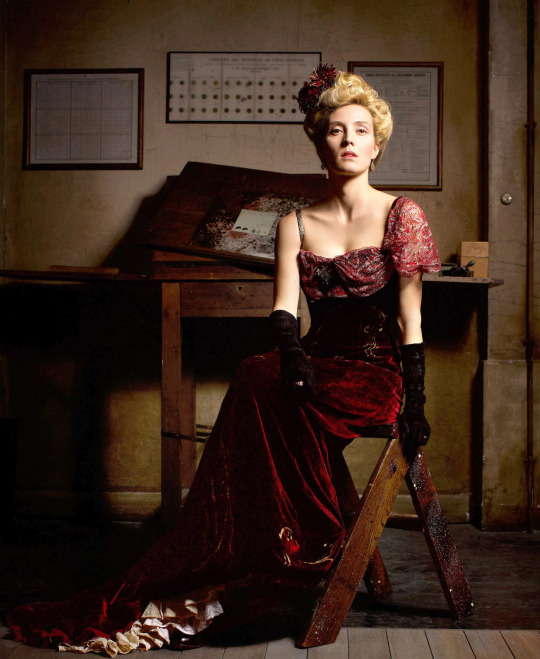
Evelyne Brochu dives into the history
The actress plays in the ambitious French series Paris Police 1900
JDM, February 23, 2021
At this time last year, Evelyne Brochu was finishing the shooting of Paris Police 1900. Twelve months later, the series was finally broadcast in France. In an interview with JDM, the Quebec actress was delighted with the final result. With good reason.
After watching the first season of the French historical thriller, we see that Canal+ has pulled out the heavy artillery to put into images this great political-social fresco by Fabien Nury, which depicts the rise of anti-Semitism in France at the turn of the 20th century. The French press speaks of a budget of $24 million for eight episodes. This is enormous.
“I traveled to Paris to shoot a series of period films, and when I watch it today, I feel like I’m traveling through time,” says Evelyne Brochu, “On my iPad, I was breathless. The visual quality, the choice of shots, the editing, the music, the distribution? On the spot, I couldn’t believe it. I was like: my God! There are so many extras! So many corsets, hairstyles, costumes... It was extraordinary.”
An incredible opportunity
Evelyne Brochu knows how lucky she is to have participated in the project, which has been receiving excellent reviews in Europe since it went on air earlier this month.
“It was magical. We shot in huge castles... It’s incredible that being an actress could open so many doors. You visit places that you would never have the opportunity to visit as a tourist... You have to savor every moment.”
In Paris Police 1900, Evelyne Brochu plays Marguerite Steinheil, known as Meg, a courtesan turned spy. The former mistress of President Felix Faure, who tries to climb the ladder despite her status as a second-class citizen.
“The woman was having a hard time. No right to vote, no right to have a bank account, and as soon as someone said ‘I saw this girl, she’s a whore’, she was locked up in Saint-Lazare for three months. As the author would say, for many of them it was: how do you learn to play cards when you start with the worst hand in the group?”
Evelyne Brochu describes Meg as a woman of heart with a rascal side. “Even if she doesn't have a good deck of cards, she’s able to play the game because she sees the moves coming.”
A “modern” series
Paris Police 1900 may revisit the past, but Evelyne Brochu describes it as a modern series. Not only because it highlights strong female characters, but because it raises issues that continue to resonate in 2021, notably by taking up word for word the inflammatory speeches of Jules Guérin, a famous anti-Semitic activist and director of a weekly magazine called L’Antijuif.
“Using hate as a marketing tool... It’s very parallel to what we’ve been going through over the last four years,” says Evelyne Brochu.
Paris Police 1900 is not yet available in Quebec. Evelyne Brochu crosses her fingers that a local channel will acquire its broadcasting rights.
Given its success, the shooting of season 2 could start in January 2022. “That would give me time to get back into the corset!” jokes the actress.
A “BIG MATERNITY LEAVE”
For Evelyne Brochu, the new mother of twins, the pandemic proved to be a “great extended maternity leave”.
Contacted on the phone, the actress recounts having spent the first confinement with Laurier, her 2-year-old little boy. Then in November, the little family grew with the arrival of Camille and Matthias.
“It would have been a moment of cocooning anyway,” observes the 37-year-old actress. “But I would definitely want to introduce my children to everyone I love. I miss them.”
Sad for Montreal
Although she spent the last year with her family in a closed retreat, the Montrealer witnessed the ravages of the coronavirus on the cultural industry.
“I’m sad for my city, for the restaurateurs, for the theater shows we’re missing... Montreal is a city of outings, restaurants, theaters and cultural activities. I have the feeling that it is its soul that is affected.”
New songs
Evelyne Brochu plans to stay close to her family in the coming months. She plans to resume her acting career in August. A film project in Quebec is in the air...
On the music side, she hopes to finally be able to present her first album on stage. Entitled Objets perdus, the record released in September 2019 has never been the subject of a show tour because of the filming of Police Paris 1900 and a certain scourge called COVID-19.
In the meantime, she continues to secretly work with her long-time accomplice, songwriter Félix Dyotte, on “things that will come out”.
And every Monday, she appears in Trop, which will conclude in March after three seasons on Radio-Canada.
“It’s rare to see series about friendship, sisterhood... series that celebrate our differences,” observes the actress. “People recognize me through my mask to tell me about it, to tell me they like to watch our show.”
#evelyne brochu#ebro#paris police 1900#pp1900#canal+#canal plus#trop la serie#trop#felix dyotte#marguerite steinheil#meg steinheil
30 notes
·
View notes
Photo


Vintage Limoges Camille clip on Earrings
11 notes
·
View notes
Text

Rosine Bloch (7 November 1844 – 1 February 1891) was a French operatic mezzo-soprano of Jewish descent who had a successful stage career in Europe between 1865 and 1891. She not only possessed a beautiful, warm, and lyrical voice but was also a remarkably beautiful woman physically. Although most of her career was spent performing at the Opéra in Paris, she also appeared in stages in Belgium, Monaco, and England. Bloch was born in Paris, the daughter of a merchant. She studied at the Conservatoire de Paris, and in 1865 won the Conservatoire's first prize for singing and the first prize for opera. She made her professional opera debut on 13 November 1865 at the Opéra's Salle Le Peletier as Azucena in Giuseppe Verdi's Le trouvère, and continued singing in that theatre, where her most notable roles included Lelia in Félicien David's Herculanumand Léonore in Gaetano Donizetti's La favorite. She also sang Edwige in Gioacchino Rossini's Guillaume Tell (with Jean-Baptiste Faure as Guillaume and Marie Battu as Mathilde in 1868 and with Caroline Carvalho as Mathilde in 1870), and Fidès in Giacomo Meyerbeer's Le prophète in 1872. Early in 1870 the Théâtre Lyrique on the Place du Châtelet lost its director Jules Pasdeloup, and the artists of that company made a desperate attempt to manage the company on their own. The director of the Opéra, ��mile Perrin, magnanimously granted the Lyrique the rights to perform Fromental Halévy's Charles VI, which had first been performed at the Opéra in 1843 and was last seen there in 1850. The soprano Hélène Brunet-Lafleur, who was cast in the leading role of Odette, abandoned the Lyrique's production, and Perrin allowed Bloch to take on the part. The revival was delayed after Bloch became ill with influenza, but eventually opened on 5 April 1870. It was described by a former director of the Opéra, Nestor Roqueplan, as a fiasco, but received 22 representations. However, on 31 May the Théâtre Lyrique folded, and Bloch returned to the Opéra. After the Opéra moved to the Palais Garnier, Bloch repeated some of her roles in new productions at that house, including Léonore in Donizetti's La favorite (21 January 1875, 443rd representation of the opera), and Fidès in the Meyerbeer's Le prophète (16 August 1876, 322nd representation of the opera).[12]She also sang Catarina Cornaro in Halévy's La reine de Chypre (16 August 1877),[13]Queen Gertrude in Ambroise Thomas' Hamlet (12 August 1878),[14]and Amneris in the Opéra's first performance of Verdi's Aida (22 March 1880), before retiring from the company. Verdi had considered casting Bloch as Eboli in the premiere of his opera Don Carlos in 1867, but finally selected Pauline Guéymard-Lauters for that role.[16] The soprano Teresa Stolz, who attended the dress rehearsal for the Paris premiere of Aida with Verdi's wife, described Bloch as "a most beautiful Amneris: she may not be an 'eagle,' but in any case, she is much better than our two Milan Amnerises (of this year)." Appearances with other companies included performances at La Monnaie in Brussels (1870 and 1874), the Opéra de Monte-Carlo in Monaco (1879), and the Royal Opera House, Covent Garden in London (1879 as Leonora in La favorite). She married on 14 May 1884 in Brussels becoming Mme S. Lévy, but continued to perform. On 31 October 1890 she sang the role of Dalila in the Paris premiere of Camille Saint-Saëns's Samson et Dalila at the Éden-Théâtre. She died in Monte Carlo (or Nice) in 1891.
#Rosine Bloch#Opéra de Paris#Conservatoire de Paris#Gaetano Donizetti#La favorite#Giuseppe Verdi#Gioachino Rossini#Guglielmo Tell#William Tell#Giacomo Meyerbeer#Le prophète#Il Trovatore#Aida#Fromental Halévy#Palais Garnier#Ambroise Thomas#Hamlet#Royal Opera House#Covent Garden#Camille Saint-Saëns#Samson et Dalila#Mezzo-soprano
6 notes
·
View notes
